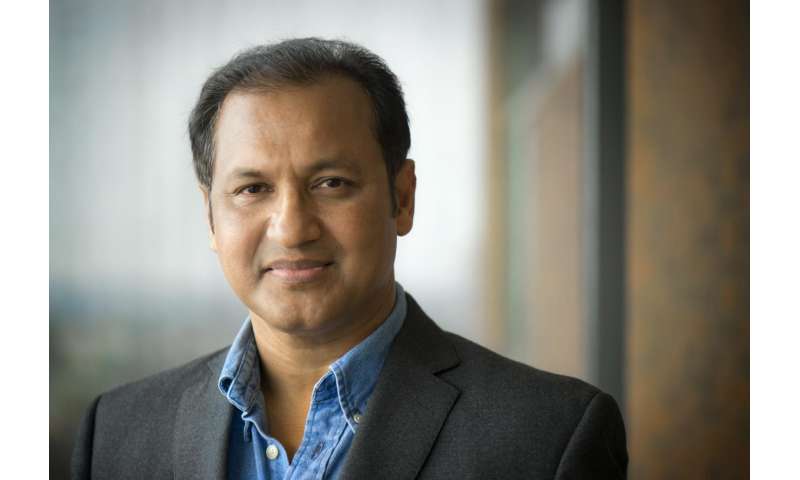Computer scientist earns grant to allow third-party users to tap location-based data

Online map services and social media networks collect huge amounts of user data each day, including location-based services that offer users the ability to find services - such as hospitals, restaurants, gas stations and more - in close proximity to where they are at a given time.
Currently, location-based data is owned by the service companies and its broad spectrum is generally unavailable to third-party vendors and the public, but Gautam Das, a University of Texas at Arlington computer science and engineering professor, will use a $199,346 Early-concept Grant for Exploratory Research, or EAGER, from the National Science Foundation to show that it is possible to perform data analytics with only local views. His project would then develop techniques to tap into that data and allow third-party clients to leverage the technology to develop location-based services applications for the public.
"Location-based services give us a wealth of information for analyzing data, but the problem is who has the data: you as the user know your own and maybe some of your friends', but service providers are the only ones who have all of the data and can do global analytics," Das said.
"We're asking, as an end user or third-party service who can only access this data in a limited manner, what kind of analysis can we do, and how can we use this information?"
Das hopes to use tools such as random sampling to perform analytics on the data obtained through existing rules for accessing data. Each company provides a specific set of rules called an application program interface, or API, that provides protocols for how to access the data. The research will develop analytics tools that carefully follow those protocols, which can be used by third party applications.
However, service providers could view this as snooping or a threat to their business secrets and are likely to be wary of allowing access. Das' challenge is to find a way to use the API to access the data and serve customers while preventing probes that would be harmful to the company.
"If it works, it offers a lot of opportunities for third-party providers to build apps and take advantage of the data. It also could expose chinks in the API models, and we will alert companies to sophisticated algorithms that are out there already trying to exploit them," Das said. "Regardless of the positives, there will always be a point at which the providers will balk, and we will try to find that point and work within those parameters."
Location-based data could show the number of cars on a particular route that third-party vendors could use for market research or to offer services to those drivers. The data also could be valuable for security or defense purposes because the U.S. could use the data to get an idea of traffic in certain areas that could be connected to world events.
EAGER grants are awarded to researchers who propose potentially transformative research into high-risk, high-reward new subjects or methods that lead to innovation.
Das' research is an example of innovative thinking in the area of data-driven discovery, one of the themes of UTA's Strategic Plan 2020: Bold Solutions | Global Impact, said Hong Jiang, Wendell Nedderman Chair and Professor in the Department of Computer Science and Engineering.
"The analysis of big data across all spectrums is a constantly changing challenge, and Dr. Das' work offers an interesting juxtaposition between the scientific and social norms surrounding it," Jiang said. "There are great challenges in protecting companies' trade secrets while still making data available for commercial purposes, and if he is successful it could change how social media data is used."
Provided by University of Texas at Arlington